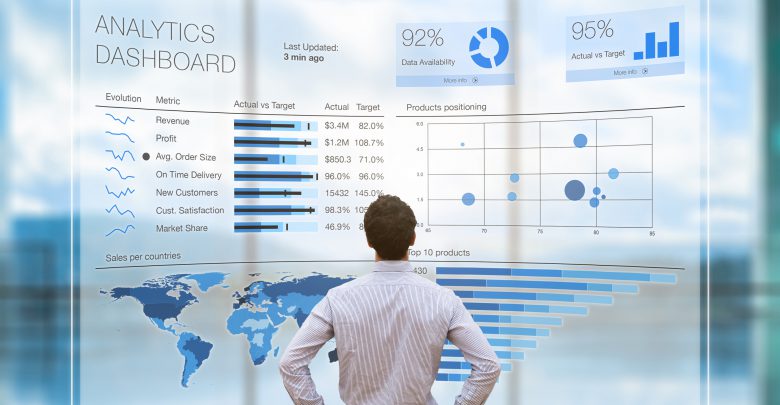Data Analytics for Business Leaders

The explosion of big data has opened several opportunities for businesses to succeed.
Organisations now have access to advanced computing power for the analysis of large quantities of data. There has been an emergence of powerful and cost-effective analytical tools that enable applications to scale up while mashing data from multiple data sources in real-time. Data analytics is releasing enormous opportunities for organisations to leverage data and use it to create value and build competitive advantage.
However, the sheer volume of data from multiple sources of origin makes analytics a significant challenge. Most of the data generated by machines are too large, raw and unstructured to be grasped by conventional techniques such as excel. In simple words, just having access to an unlimited amount of data is meaningless. The value of data is only realised in the way it is used.
This is where data analytics comes into the picture. Analytics is about transforming data into meaningful insights that aids in decision-making and the execution of business interactions in real-time. Techniques in analytics such as predictive modelling, statistics and visualisation, turns data into insights that drive business decisions and leads to actions that ultimately improve business performance.
Data analytics can help organisations understand their past, mitigate potential mistakes and fill knowledge gaps, while also preparing against a volatile future with accurate predictions.
Analytics comes with a promising potential of using data to gain competitive advantage by helping organisations:
- Understand business patterns and trends
- Improve the accuracy of decisions
- Focus on areas that will convert to growth
- Improve customer interactions and deliver satisfaction
- Drive employee and business partner engagement and value
The aim is to be a data-driven enterprise that does not rely on the gut to make decisions.
Making data analytics a part of organisational culture
Once organisations have the right data, analytics can be used as a primary vehicle for driving value creation and solving complex problems. The success of this will depend on how much organisations appreciate the importance of having an analytics-driven culture. A report by Forbes Insights found that organisations that have approached their culture with clear business outcomes in mind and an open acceptance for analytics-based decision making versus judgement are the best performers.
Analytics should be accessible and used in every aspect of the enterprise and not just stay in the hands of select leaders. Business leaders need to be open to introducing changes based on analytics-driven insights and embed them into business processes and interactions.
In an analytics-driven culture, the executive team leads the change and thoroughly embeds analytics into decision-making processes across all levels. Leadership plays a crucial part in achieving a successful analytical transformation. Business leaders must take proactive measures to promote and support the use of analytics within their organisation. Leaders also need to find the right people to join specialised cross-functional teams to drive analytical operations.
The opportunity and who is right for the job
While several organisations still struggle with who should own analytics, an opportunity lies within the finance function to take the lead. Today, many finance functions are already a key business partner and a steward of enterprise performance.
Being from a data-driven background, CFOs are well equipped to be involved in operational business decision-making and take the lead to pave the way for analytics to determine a better future for businesses.
The widespread presence of digital technologies such as robotic process automation (RPA), artificial intelligence (AI), machine learning and advanced analytics is giving rise to new business models and operating models. With such a pace of business changes, finance teams are facing a growing pressure to deliver higher value than they have been in the past.
This has put a spotlight on CFOs, and they are being asked to answer how this new turn of events can change the finance function based on their engagement with the organisation and their adoption of these new technologies.
Additionally, advanced analytics present various opportunities for organisations to not just understand trends, but also gear up to hedge against volatility and respond in real-time. CFOs can show how finance can lead in the data and analytics game by identifying business areas where analytics can deliver value and competitive advantage.
These changes are evolving the role of the CFO into a strategic one where they are in the best position to align investment in advanced analytics with organisational strategy and operational execution.
The challenges of data analytics
While promises from analytics are significant, the actual reality paints a different picture. Many finance functions are still operating under legacy models, and the organisations are lacking the analytical insights to create value.
Stuck in the mundane
Instead of predicting the future, finance teams are too busy analysing the past. They are stuck in the day to day transactions. A lot of time gets wasted in chasing the perfect data, making reports in excel, correcting errors and manually validating the information reported.
Data woes
According to Accenture, only four in ten organisations can instantly answer critical questions about their organisations. Such data dysfunction is a common issue across organisations new and old. Most organisations are still struggling with the most fundamental challenges, such as budgetary issues, operating in silos or inaccessible data. For the ones that do have data access, data inaccuracy and inconsistency plague them.
Talent gap
There is a need for many different types of skills to decode analytics. To leverage analytics to its maximum capacity, CFOs will need a cross-functional team of finance, business, data scientists, analysts and engineers from both internal and external resources to truly make analytics work.
Mindset change
The most significant challenge remains for finance teams to release themselves of the controller mentality and accept that times have changed. They need to become an operating partner of the business where information is available at all levels for better decision making.
What should be the ideal way forward?
While investment in technology is necessary, the greater focus required is on the behavioural alignment needed to best use the technology to deliver the right insights at the right time, to the appropriate individuals, so that decisions can be made, and execution happens.
People’s behaviours need to change; they need to know how to make data-driven decisions and how to act on insights to realise the real value. Technology is only a tool. The real investment required is for the implementation of the data and analytics operations.
The CFOs must pave the way to achieve this while collaborating actively with the rest of the C-suite and the broader organisation. The CFOs must rise above their legacy operating models to truly lead the organisation in data and analytics and shape the organisation’s future.
Organisations need to figure out their unique analytics model based on where they currently are and where they aim to get. Focus on building a data and analytics operational centre that uses cross-functional teams with a phased roadmap. Start with small wins, making a case for change, while obtaining buy-in and building organisational capabilities.
Finance teams need to understand the current status of their journey towards becoming a modern finance function, build their finance strategy and determine the organisation’s competency in a digital analytics-enabled world. Only then will they be ready to lead the organisation to become a data-driven enterprise.
